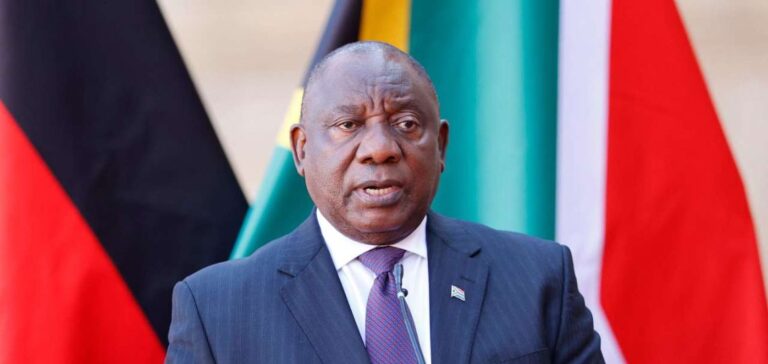South Africa, one of the most industrialized economies on the African continent, finds itself at a crossroads between the need to reduce its greenhouse gas emissions and the preservation of its economic and social fabric. Currently, 80% of its electricity production depends on coal, employing over 100,000 people. This makes the country one of the world’s biggest CO2 emitters.
At a meeting with government representatives and international donors, President Cyril Ramaphosa stressed the importance of an energy transition that is both equitable and inclusive. He insisted that this transition must not be at the expense of workers and local communities, citing the need for a pace of decarbonization adapted to the country’s economic and social capacities.
International Investments and Local Challenges
Since 2021, South Africa’s initiatives to move away from coal have received support from wealthy countries, with an $8.5 billion funding program also aimed at supporting affected workers. The World Bank also contributed $497 million in 2022 to transform a large coal-fired power plant into a renewable energy facility.
However, the transition is not without its challenges. Resistance is growing, particularly within the African National Congress (ANC), traditionally supported by the miners’ unions. Employment remains a critical issue, with an unemployment rate in excess of 30%. In addition, aging electrical infrastructure has led to power shortages, with blackouts of up to 12 hours a day in some regions.
Towards Energy Diversification
Faced with these challenges, South Africa is actively exploring energy alternatives. The country has opened up to private investment to create a more competitive electricity market, and is banking on green hydrogen and wind power. Ramaphosa’s speech emphasized the importance of carbon taxes in encouraging companies to adopt cleaner technologies, and highlighted the government’s efforts in retraining programs and support for small businesses.
Reflections on Just Transition
The balance between ecological transition and job preservation remains delicate. Ramaphosa’s gradual approach aims to minimize negative economic impacts while moving towards a more sustainable future. International cooperation and private investment play a crucial role in this transition, offering opportunities to diversify the economy and improve the country’s energy resilience.
The road to a low-carbon economy is fraught with challenges, but with the right policies and continued support, South Africa can become a model of fair and inclusive transition, reconciling sustainable development and social progress.






















